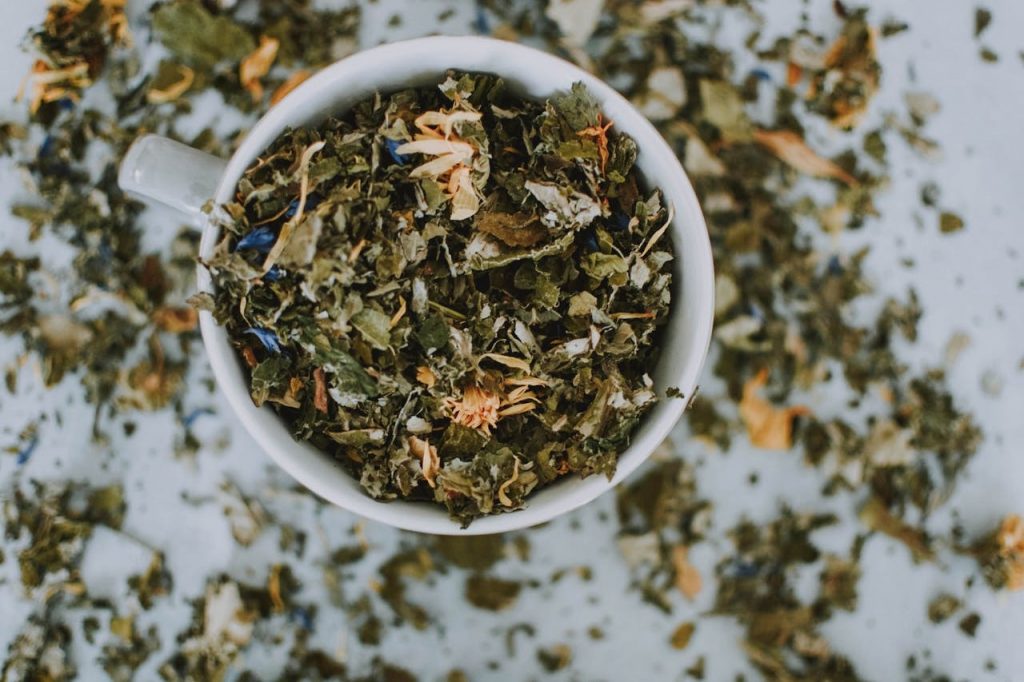Best Teas for Memory Enhancement and Brain Health

Our brain health is vital for overall well-being and cognitive functioning. One natural way to support memory enhancement and brain health is through the consumption of teas that are rich in antioxidants and other beneficial compounds.
Understanding Brain Health and Tea
Before diving into the specifics of each tea, it’s important to understand how these teas can influence our brain health. The brain is a highly complex organ, and its performance can be significantly affected by diet, lifestyle, and the intake of specific compounds. Teas, particularly those rich in antioxidants, flavonoids, and anti-inflammatory agents, can play a crucial role in maintaining and even enhancing cognitive function. This is mainly due to their ability to reduce oxidative stress, improve blood flow, and support the formation of new neural connections.
Green Tea
The Science Behind Green Tea’s Benefits
Green tea is a popular choice for brain health due to its high content of catechins, particularly epigallocatechin gallate (EGCG). These antioxidants have been shown to have neuroprotective effects and may help improve memory and cognitive function. The combination of caffeine and L-theanine in green tea can also promote alertness and focus, further supporting brain health. Caffeine acts as a stimulant by blocking adenosine receptors, while L-theanine promotes relaxation without drowsiness, creating a balanced state of increased focus.
Case Study: The Impact on Age-Related Cognitive Decline
Several studies suggest that regular consumption of green tea may help protect against age-related cognitive decline and reduce the risk of neurodegenerative diseases. For example, a study conducted in Japan found that elderly individuals who consumed green tea regularly had a lower risk of cognitive impairment compared to non-drinkers. This protective effect is attributed to the potent antioxidants in green tea that combat oxidative stress, a key factor in the development of cognitive disorders.
Practical Tips
- Brewing Tips: To maximize the benefits of green tea, brew it at a lower temperature (about 80°C or 175°F) for 2-3 minutes. This helps preserve the delicate catechins and L-theanine.
- Daily Routine: Incorporate 2-3 cups of green tea into your daily routine, ideally in the morning or early afternoon, to enjoy its cognitive benefits without disrupting sleep.
Ginkgo Biloba Tea
How Ginkgo Biloba Works
Ginkgo biloba is a well-known herb that has been used for centuries to improve cognitive function. Ginkgo tea is believed to increase blood flow to the brain, which can enhance memory and concentration. The flavonoids and terpenoids in ginkgo biloba have antioxidant properties that may protect brain cells from damage caused by free radicals. This increased circulation not only boosts cognitive performance but also supports overall brain health.
Research Insights
Research indicates that ginkgo biloba may support cognitive function, particularly in terms of memory recall and retention. A notable study published in the “Journal of Psychopharmacology” found that participants who took ginkgo supplements showed significant improvements in memory and cognitive processing speed compared to a placebo group. This suggests that ginkgo may be particularly beneficial for individuals experiencing mild cognitive decline.
Incorporating Ginkgo Tea
- Brewing Advice: Use dried ginkgo leaves to brew a mild tea. Steep for about 5-10 minutes to extract the full range of beneficial compounds.
- Frequency: Consider drinking ginkgo biloba tea once a day, especially during mental tasks or study sessions, to enhance memory and focus.
Peppermint Tea
Cognitive Benefits of Peppermint
Peppermint tea is not only refreshing but also beneficial for brain health. The menthol in peppermint has been shown to improve cognitive function and alertness, making it a great choice for boosting memory. Menthol acts as a mild stimulant that can enhance the brain’s processing speed and improve mood, thanks to its invigorating scent.
Real-World Applications
In addition to its cognitive benefits, peppermint tea can also help alleviate stress and improve mood, further contributing to overall brain health. A study from the “International Journal of Neuroscience” indicated that peppermint aroma improved memory and increased alertness in participants. The invigorating aroma of peppermint tea can stimulate the brain, enhancing mental focus and clarity.
Tips for Use
- Preparation: Use fresh or dried peppermint leaves. Steep in boiling water for 7-10 minutes to release the oils.
- Consumption Time: Drink peppermint tea in the afternoon or whenever you need a mental pick-me-up, as it can help refresh the mind.
Holy Basil Tea
The Role of Holy Basil
Also known as tulsi, holy basil is a potent adaptogen that can help reduce stress and improve cognitive function. Holy basil tea is a great way to support brain health and memory enhancement. The unique combination of phytochemicals in holy basil, such as eugenol and rosmarinic acid, have been linked to cognitive benefits including enhanced memory and learning.
Stress Reduction and Cognitive Enhancement
Regular consumption of holy basil tea may also help lower cortisol levels associated with stress, promoting a calm and focused state of mind. The anti-inflammatory properties of holy basil can further protect brain health by reducing inflammation and oxidative stress. This dual action of stress reduction and cognitive enhancement makes it particularly valuable in today’s fast-paced world.
Practical Application
- Preparation Tips: Brew holy basil leaves for 10 minutes in hot water to extract its beneficial compounds.
- Best Time to Drink: Consume holy basil tea in the evening or during stressful periods to help unwind and promote mental clarity.
Ginseng Tea
Ginseng’s Impact on Focus and Memory
Ginseng is a popular herb that is often used to improve focus and memory. Ginseng tea contains compounds that can help boost cognitive function and protect the brain from oxidative stress. The active ingredients in ginseng, known as ginsenosides, have been shown to enhance cognitive performance by improving brain function and promoting neuroplasticity.
Scientific Support for Ginseng
Regular consumption of ginseng tea may help improve memory retention, attention span, and overall mental acuity. A study published in “The American Journal of Chinese Medicine” highlighted that ginseng supplementation improved cognitive performance in healthy adults, emphasizing its role in supporting brain health.
How to Use Ginseng
- Brewing Technique: Use sliced ginseng root or ginseng tea bags. Steep in hot water for about 5-6 minutes.
- Optimal Use: Drink ginseng tea in the morning to harness its energizing properties, which can enhance mental alertness and stamina.
Additional Teas for Brain Health
Turmeric Tea
Turmeric, with its active compound curcumin, is known for its powerful anti-inflammatory and antioxidant properties. Turmeric tea can help improve mood, boost brain function, and may even protect against cognitive decline. Curcumin has been shown to increase levels of brain-derived neurotrophic factor (BDNF), a growth hormone essential for brain health.
- Brewing Guide: Combine turmeric powder with black pepper (to enhance absorption) and steep in hot water for 10 minutes.
- When to Drink: Enjoy turmeric tea daily for its broad health benefits, including brain support.
Rosemary Tea
Rosemary has long been associated with memory and concentration. The compound rosmarinic acid in rosemary tea is believed to enhance cognitive performance. Research suggests that even the scent of rosemary can improve memory recall.
- Preparation: Steep fresh rosemary sprigs in hot water for 5 minutes.
- Use: Drink rosemary tea before engaging in tasks that require mental focus and memory recall.
Common Mistakes and How to Avoid Them
- Overconsumption: Drinking excessive amounts of any tea can lead to unwanted side effects, such as jitteriness from caffeine or digestive issues. Stick to moderate amounts.
- Ignoring Quality: Opt for high-quality, organic teas to ensure you’re getting the full spectrum of health benefits without harmful chemicals.
- Neglecting Diet and Lifestyle: Remember, teas are a supplement to a balanced diet and healthy lifestyle. Ensure you’re also eating a brain-healthy diet rich in omega-3s, nuts, seeds, and leafy greens.
Integrating Teas into a Brain-Healthy Lifestyle
Incorporating these teas into your daily routine can provide long-term benefits for brain health and overall well-being. By harnessing the natural power of antioxidants and beneficial compounds found in teas like green tea, ginkgo biloba, peppermint, holy basil, and ginseng, you can nourish your brain and optimize cognitive function. Remember to enjoy these teas in moderation as part of a balanced diet and healthy lifestyle for optimal brain health and memory enhancement.

